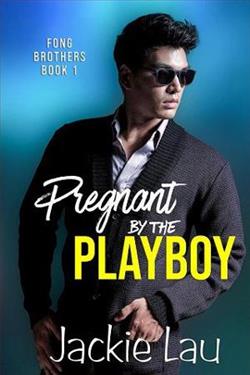Page 3 of The Mafia's Fake Wife
“Mr. Abernathy’s post-op fever spiked to 101.3 overnight,” she says, handing me his chart. “What’s your differential?”
My mind snaps into clinical mode. “Given his recent transplant, I’d consider rejection, though it’s early. More likely infection—surgical site, urinary tract, or pneumonia. Could also be a reaction to the anti-rejection medications.”
Dr. Patel nods, her expression giving away nothing. “And your plan?”
“Blood cultures, urine culture, chest X-ray. Broad-spectrum antibiotics until we identify the source. Monitor his kidney function closely.”
“Good. Kahlen?”
Justin jumps in with additional suggestions while I scan Mr. Abernathy’s latest labs. The numbers blur slightly, and I blink hard, forcing myself to focus. I can’t afford distractions today. I can’t afford anything, period.
“Clarke, you’ll present at rounds,” says Dr. Patel, already moving toward the next patient room. “And fix your scrubs. You look unprofessional.”
I glance down at the coffee stain, now a faint brown smudge across my chest. “Yes, Dr. Patel.”
We follow her down the hallway, a small parade of white coats and blue scrubs. Two more residents join us, along with a nervous-looking medical student. I flip through my notes, mentally rehearsing my presentation.
“You’ve got this,” Justin whispers as we approach Mr. Abernathy’s room.
I nod, grateful for his support even if I don’t deserve it. I’ve been distant with everyone lately, too consumed by my own problems to be a good friend.
Dr. Patel pauses outside the door. “Remember, confidence inspires trust. Patients need to believe we know what we’re doing, even when we’re not entirely sure.”
It’s one of her favorite sayings, and usually it makes me smile. Today, it just reminds me how much of my life is a performance right now. Pretending I’m not about to lose everything I’ve worked for. Pretending I’m not furious and heartbroken and terrified all at once.
We enter the room, and I paste on my professional smile. Mr. Abernathy is sitting up in bed, his wife in the chair beside him. They both look worried, but their faces brighten when they see me.
“Dr. Clarke,” says Mrs. Abernathy. “We were hoping you’d be here today.”
The simple statement warms me. This is why I do this. This connection. This trust. This chance to help people when they’re most vulnerable.
“Good morning, Mr. and Mrs. Abernathy. How are you feeling today?”
As Mr. Abernathy describes his symptoms, I perform a quick visual assessment. His surgical site looks clean with no signs of infection. His color is good despite the fever. His breathing is slightly labored but not concerning.
I present his case to the team, answering Dr. Patel’s rapid-fire questions without hesitation. This is the one area where my confidence never wavers. The one place where I still feel in control.
When we leave the room, Dr. Patel gives me a small nod—high praise from her. “Good assessment, Clarke. Order those tests and let me know the results immediately.”
“Yes, Dr. Patel.”
She moves on to the next patient, taking most of the team with her. Justin stays behind, watching me with concern. “You really are okay, right?” he asks once we’re alone. “You seem... off.”
I consider brushing him off again, but the genuine worry in his eyes stops me. “Just some personal stuff. Nothing I can’t handle.”
“Anything I can help with?”
“Not unless you’ve got twenty thousand dollars lying around.” The joke falls flat, and I immediately regret it when his eyes widen.
“Twenty thousand? Elena, what’s going on?”
I shake my head. “It’s nothing. Bad joke. I should go order those tests.”
Before he can press further, I hurry toward the nurses’ station. I don’t need Justin’s pity. I don’t need anyone’s help. I’ve been taking care of myself since my mother died, and my father disappeared before I really had any firm memories of him. This is just one more problem to solve on my own.
As I log into the computer system, my phone buzzes with a text from Liv.
Called the financial aid office. They might have emergency options. Call them ASAP.















